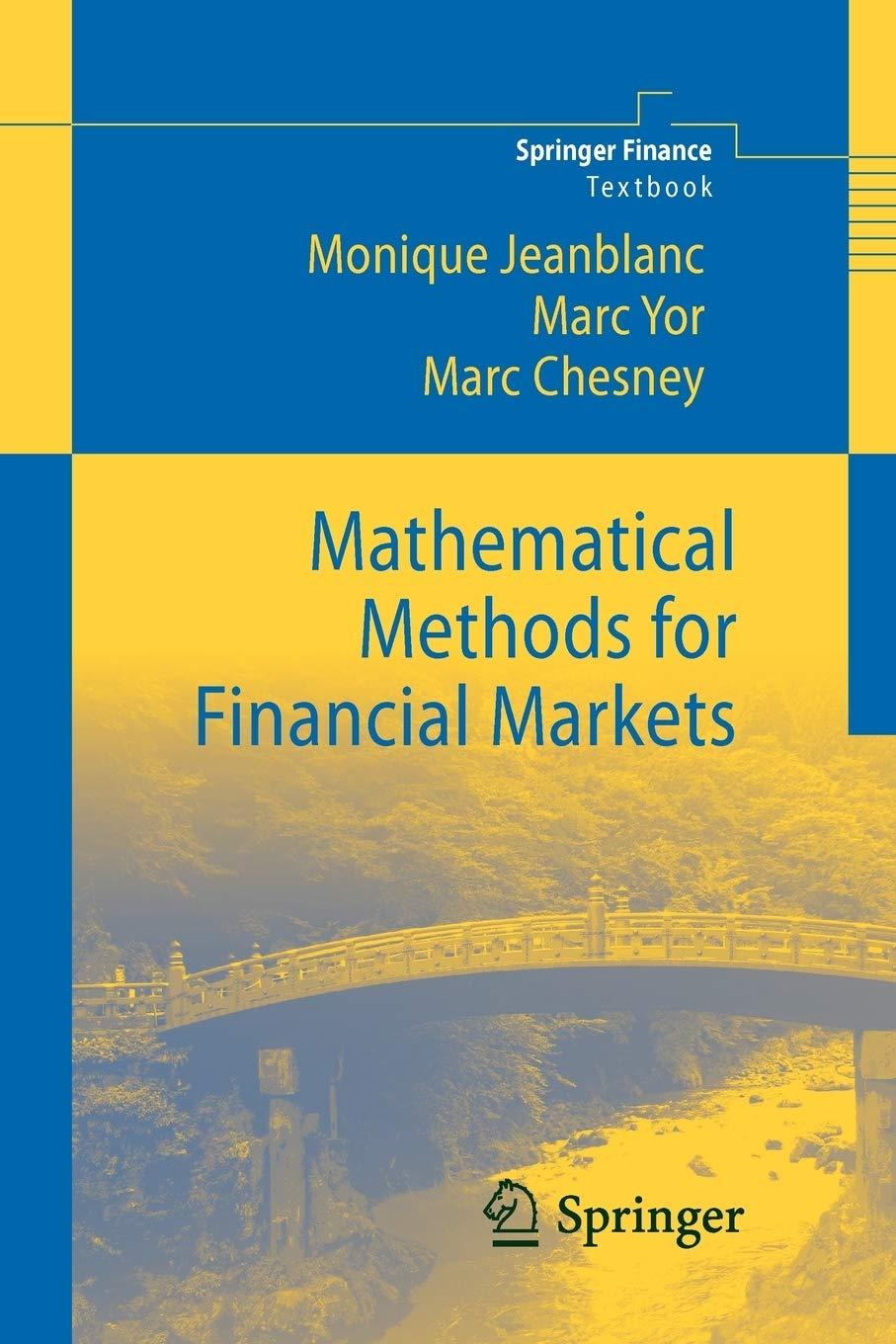Prove that (v) of Definition 1.4.1.1 characterizes a BM, i.e., if the process (left(Z_{t}=exp left(i lambda X_{t}+frac{lambda^{2}}{2}
Question:
Prove that (v) of Definition 1.4.1.1 characterizes a BM, i.e., if the process \(\left(Z_{t}=\exp \left(i \lambda X_{t}+\frac{\lambda^{2}}{2} t\right), t \geq 0\right)\) is a \(\mathbf{F}^{X}\)-local martingale for any \(\lambda\), then \(X\) is a BM.
\[\forall A \in \mathcal{F}_{s}, \mathbb{E}\left[\mathbb{1}_{A} \exp \left(i \lambda\left(X_{t}-X_{s}\right)\right)\right]=\mathbb{P}(A) \exp \left(-\frac{1}{2} \lambda^{2}(t-s)\right) . \quad \triangleleft\]
Definition 1.4.1.1:
The continuous process \(X\) is said to be a Brownian motion, (in short, a BM), if one of the following equivalent properties is satisfied:
(i) The process \(X\) has stationary and independent increments, and for any \(t>0\), the r.v. \(X_{t}\) follows the \(\mathcal{N}(0, t)\) law.
(ii) The process \(X\) is a Gaussian process, with mean value equal to 0 and covariance \(t \wedge s\).
(iii) The processes \(\left(X_{t}, t \geq 0\right)\) and \(\left(X_{t}^{2}-t, t \geq 0\right)\) are \(\mathbf{F}^{X}\)-local martingales.
(iii') The process \(X\) is an \(\mathbf{F}^{X}\)-local martingale with bracket \(t\).
(iv) For every real number \(\lambda\), the process \(\left(\exp \left(\lambda X_{t}-\frac{\lambda^{2}}{2} t\right), t \geq 0\right)\) is an \(\mathbf{F}^{X}\)-local martingale.
(v) For every real number \(\lambda\), the process \(\left(\exp \left(i \lambda X_{t}+\frac{\lambda^{2}}{2} t\right), t \geq 0\right)\) is an \(\mathbf{F}^{X}\)-local martingale.
Step by Step Answer:

Mathematical Methods For Financial Markets
ISBN: 9781447125242
1st Edition
Authors: Monique Jeanblanc, Marc Yor, Marc Chesney





